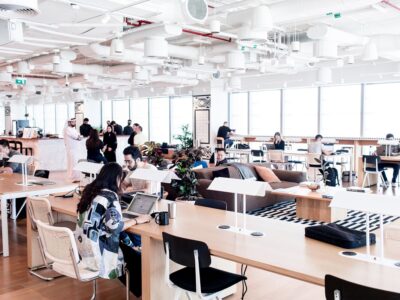Most companies in the UAE and Saudi Arabia see generative AI reshaping industries but talent gaps and privacy concerns crimp innovation potential, a new study has revealed.
Dell’s Innovation Catalyst Research found that 95 percent of UAE firms and 100 percent of those in Saudi Arabia believe AI and GenAI will significantly disrupt their sectors in the future.
UAE and KSA competitive strategies
Around 90 percent in both countries also said they are well-positioned competitively with solid strategies for leveraging these technologies.
Yet the findings reveal a stark disconnect, with about half unsure what their industries will look like in 3 to 5 years, and nearly 80 percent admitting they are struggling to keep pace with the breakneck speed of innovation.
A lack of the right talent (UAE 31 percent, KSA 27 percent), data privacy and cybersecurity worries (UAE 27 percent, KSA 28 percent), and inadequate budgets (UAE 31 percent, KSA 31 percent) were cited as the top roadblocks to unlocking innovation.
“Organisations seeking to stand out must pivot from treating innovation as a side project to deeply embedding it into their corporate identity,” said Mohammed Amin, SVP for CEEMETA at Dell Technologies.
“By combining GenAI and other transformative innovations, businesses can augment capabilities and raise productivity to new heights.”
GenAI’s potential and risks
While highly optimistic about GenAI’s potential for enhancing cybersecurity, productivity, and customer experience, major concerns persist around introducing new security risks and protecting proprietary data and intellectual property.
Around 75 percent fear GenAI could create fresh privacy issues, while over 80 percent agree their data is too valuable to be accessed by third parties through GenAI tools. An overwhelming majority also believe organisations, not AI providers or users, are responsible for any unintended AI behaviour.
On the cybersecurity front, over 90 percent of firms suffered an attack in the past year, with malware, phishing, and data breaches being most prevalent. Around 80 percent identified insider threats from employees circumventing security protocols as a key vulnerability requiring better training.
The research highlighted an innovation imperative around modernising data infrastructure, with most IT leaders preferring on-premise or hybrid models for implementing GenAI at scale. Data-sharing capabilities and deriving real-time insights from data also emerged as priorities.
Talent pipelines stand out as a pervasive challenge, with two-thirds acknowledging an industry-wide skills shortage for driving innovation. In-demand competencies include AI fluency, learning agility, creativity, and sustainability mindsets.







